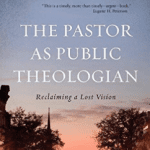In our age, it is incredibly easy to reference almost any material we would like to – and because of this, many are ill-equipped to really discern what they take in, let alone speak with wisdom on it. They appear wise and learned, yet in reality, they’ve simply read everything they could get their hands on, listened to every preacher they desire, downloaded every podcast or university lecture they can, and digested every new blog post that comes their way, without really comprehending it or the logical extensions thereof. They were ravenous in the desire to be filled with sound bites of theological teaching that are generally more aligned with much of what the world thinks than what is presented in the scriptures.
This is an exaggeration – slightly – yet the absurdity is being used to show the obvious point: many have swung so far in the opposite direction of biblical illiteracy that they ingest contradictory teaching from various platforms – and because they are relatively intelligent, they formulate their own opinions on what that doctrine is. While they have touted, “Sola scriptura,” they have neglected to do much serious study. They have read enough to formulate an opinion, carry it with them to the coffee shop or on to Facebook and Twitter with their moxie in one hand, Ctrl+V in the other, and go to war with the brethren.
It seems they have ignored the warning that not everyone should teach. They have forgotten that those who do incur more strict judgment. This is not a flippant verse, but a legitimate warning in scripture seeking to deter the unqualified from teaching.
Reader, I am talking to you: be prepared to be judged if you want to teach. It is rather interesting to note James doesn’t provide the context in which one teaches, but rather, speaks broadly upon the act itself.
We all teach in some capacity, whether that is to children, the reprobate, or those whom we disciple. My point, as well as that of the apostle James, is to cause you to think twice about teaching. The unfortunate bane to modern Christendom has extended through the ability for many to have a public voice who are simply not biblically qualified to do so. And yet, not many are called to teach, even if social media outlets have given the platform to do so. Let me be very clear: it has given every Christian the ability to evangelize; it has not given every Christian the office of a teacher to an ethereal, corporate church body.
I argue that this is not only o.k. – but a good thing. Are we not various members of the same body, some of whom are gifted in other ways for the edification of the whole? Not everyone can be teachers. Not everyone who teaches should be doing so. Far too many people have a particularly harder time hearing this than some others – but not all can or should be teachers, even on social media. This is vital to understanding how such an office should be held in much higher regard, yet vital to ensuring sound doctrine is promulgated rather than heresy or heterodoxy.
At some points, it is simply best to keep quiet and refrain from incurring judgment upon ourselves for careless words which we spoke, thinking more highly of ourselves than we ought.
If you want to teach: good; if you’ve been approved and confirmed by others who are approved and able to teach: excellent. Be diligent to present yourself approved to God as a workman who does not need to be ashamed, accurately handling the word of truth.
The tricky part here now is in admitting the inability to teach if we are found lacking. The trickier part is then even found in regarding James’ statement in saying not many should be teachers. It seems we have many square pegs trying to fit themselves into a cylindrical hole.
Each member has particular giftedness for the purpose of edifying the body of Christ; shall we kick against the goads of God, who bestows these wonderful gifts according to His desire?
Image Credit: Used Bible by Doug1021; CC 2.0













